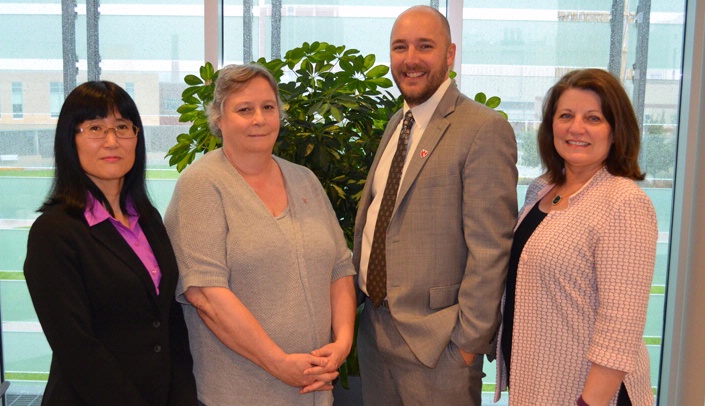A study of the state of behavioral health care in Nebraska has received positive feedback from state lawmakers, said Shinobu Watanabe-Galloway, Ph.D., one of the authors of the study.
Positive trends
Although the report does note some challenges, there are several positive trends, Dr. Watanabe-Galloway said. She pointed to increased collaborative efforts that have been going on among different parties, including the Department of Health and Human Services and the behavioral health regions, the parties that provide funding and administer some of the state’s mental health programs.
“There are positive signs,” Dr. Watanabe-Galloway said.
Among those signs:
Wait data for patients to get treatment is showing improvement. “Some of the data shows that the waits have been shortening in some areas; people do not have to wait as long as they used to.”
Also, consumers — people who have behavioral health issues and are seeking support — report that there are now more community-based support programs available.
Finally, the emergency response system throughout the state has shown some signs of positive trends, Dr. Watanabe-Galloway said.
Dr. Watanabe-Galloway was among the public health researchers and health care professionals who testified about the report to the Nebraska Task Force on Behavioral and Mental Health in September. The report was released last week.
“The report, which is very comprehensive, will be informative in developing policies to increase access to mental health care in Nebraska and awareness of mental health issues such as the shortage of the mental health workforce in rural communities,” she said.
“The report is raising awareness about mental illness,” Dr. Watanabe-Galloway said. “And there are a number of recommendations coming out of this study that we hope will be helpful to improve the behavioral health care system in Nebraska.”
The study involves statewide focus groups and three surveys, as well as data from the College of Public Health’s Health Professional Tracking Service.
“Our college was well situated to conduct this type of comprehensive study because of faculty expertise and experience with community engagement and availability of workforce data,” Dr. Watanabe-Galloway said.
Information from the report included:
Mental illness is one of the most common chronic health conditions in the U.S. and in Nebraska
- 1 in 5 people experienced some type of mental illness in the previous year.
- Of all adults who reported to experience mental illness, only 47 percent received treatment for it.
But the public’s awareness about mental illness is very low.
- Many people do not know how to access mental health care.
- Many people do not know what they should do if their family members or friends experience a mental illness crisis.
Also, binge drinking in Nebraska is a serious public health problem — Nebraska ranks 47th, with a 20 percent prevalence; West Virginia is No. 1 with a 10 percent prevalence.
The report also notes that the shortage of behavioral health workforce in Nebraska is a huge issue. Only 12 Nebraska counties have psychiatrists.
